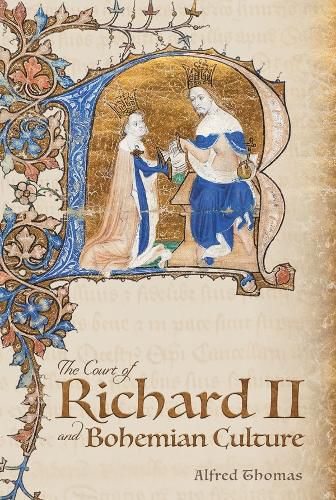Readings Newsletter
Become a Readings Member to make your shopping experience even easier.
Sign in or sign up for free!
You’re not far away from qualifying for FREE standard shipping within Australia
You’ve qualified for FREE standard shipping within Australia
The cart is loading…






Bohemian culture exercised an important influence on the court of King Richard II, but it has been somewhat overlooked, with previous scholarship on its writers and artists generally confined to the role played by the French courtof King Charles V and the Italian city states of Milan and Florence. This book aims to fill that gap. It argues that Richard’s marriage to Anne of Bohemia, daughter of the Holy Roman Emperor Charles IV, one of the greatest rulersand patrons of the age, exposed England to the full extent of this international court culture. Ricardian writers, including Chaucer, Gower and the Gawain-poet, wrote in their native language not because they felt English in the modern national sense but because they aspired to be part of a burgeoning vernacular European culture stretching from Paris to Prague and from Brabant to Brandenburg; thus, one of the major periods of English literature can only be properly understood in relation to this larger European context.
$9.00 standard shipping within Australia
FREE standard shipping within Australia for orders over $100.00
Express & International shipping calculated at checkout
Stock availability can be subject to change without notice. We recommend calling the shop or contacting our online team to check availability of low stock items. Please see our Shopping Online page for more details.
Bohemian culture exercised an important influence on the court of King Richard II, but it has been somewhat overlooked, with previous scholarship on its writers and artists generally confined to the role played by the French courtof King Charles V and the Italian city states of Milan and Florence. This book aims to fill that gap. It argues that Richard’s marriage to Anne of Bohemia, daughter of the Holy Roman Emperor Charles IV, one of the greatest rulersand patrons of the age, exposed England to the full extent of this international court culture. Ricardian writers, including Chaucer, Gower and the Gawain-poet, wrote in their native language not because they felt English in the modern national sense but because they aspired to be part of a burgeoning vernacular European culture stretching from Paris to Prague and from Brabant to Brandenburg; thus, one of the major periods of English literature can only be properly understood in relation to this larger European context.